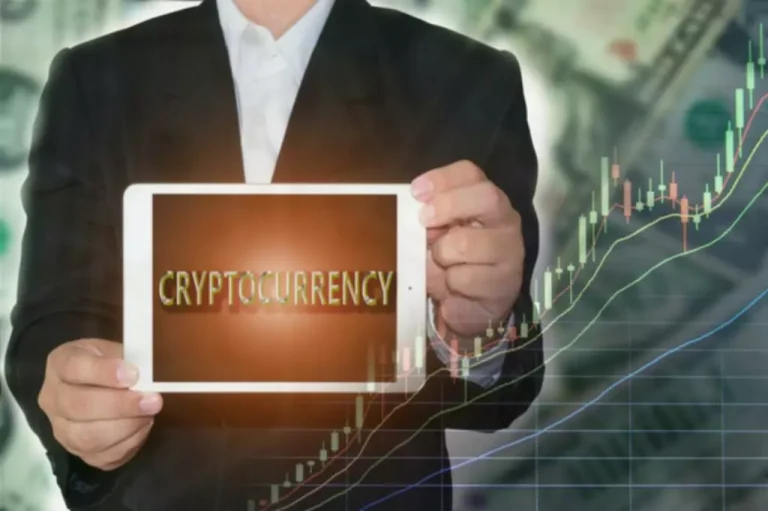This is because you have accepted someone else’s offer and therefore ‘taken’ that liquidity from the order book. Market takers, unlike market makers, place more importance on the immediate execution of the order than on the terms of the order. This is why in most cases you will not see a taker’s position in the order book, as most non-expert users execute market orders, i.e. orders that are executed at the first available price, unlike limit orders.

As explained above – Market making is an integral part of the crypto markets that involves buying and selling tokens to ensure liquidity. Market makers are typically firms that ensure that there’s always a buyer and seller for each transaction, which helps prevent drastic price fluctuations and maintains the overall stability of the crypto market. They provide the liquidity necessary for traders to execute their trades quickly and at fair prices.
They use quantitative models to make decisions and what you give up in speed and convenience, you make up for in flexibility. Whereas market making bots are pre-programmed to react a certain https://www.xcritical.in/ way, human market makers can adapt and thrive in difficult environments. Bluesky is an all-around market-making company that offers a wide range of trading and investment services.
These two entities are the lifeblood of any cryptocurrency exchange, and it is their presence (or rather, lack of it) that differentiates a strong and robust exchange from a weak exchange. Since exchanges often use an order book to manage multiple trading pairs, these market participants ensure that the order book works fairly and transparently. Market making is the process of providing liquidity to the market by simultaneously buying and selling a financial instrument. Study the basics of market making, including how to manage risk, set bid and ask prices, and adjust prices based on market conditions.

However, crypto markets and businesses can take advantage of white-label tools, DeFi systems, bots, and liquidity pools. These premade systems allow you to market make yourself and/or ‘rent’ crypto liquidity. Whether there is a premium or not from their client, a large part of the profit comes from the spread for market makers.
Aside from market making services, Kairon Labs also offers exchange listings, IP licensing, secondary market advisory, and sponsorships. Market maker crypto is essential to ensure that there is sufficient liquidity in the market to facilitate trading. They help reduce bid-ask spreads, resulting in lower transaction costs for traders.
It is a popular alternative for institutional traders due to features such as automated trading and risk management tools. On spot trading, B2C2 supports 27 digital assets, including major stablecoins like USDC and USDT. In derivatives, there are options, CFDs, and NDFs for institutional investors seeking OTC services. Based on the token used to take a loan, the collateralization rate varies on B2C2.
There is always a difference between what buyers and sellers are willing to pay and receive. This discrepancy between the offered versus asked price is what is called the “spread”. The crypto market making process assists in bringing buyers and sellers together on a single platform for performing sales, purchases, and trading of all types of digital assets in the crypto market. With the growing adoption of decentralized finance (DeFi) and the increasing popularity of decentralized exchanges (DEXs), new market-making strategies are emerging. These include liquidity mining and yield farming, where users provide liquidity to a DeFi protocol in return for rewards. Designated market makers also facilitate institutional investors and blockchain projects in carrying out large-size orders on the spot and in derivative markets.
The entry of a whale in such a market will be less disruptive than in an illiquid market, as there will be many more orders ready to match its supply or demand. These regulations could focus on transparency, disclosure requirements, and risk management practices for market makers. Striking the right balance between investor protection and fostering market innovation will be crucial. Regulatory frameworks vary across jurisdictions, with some countries implementing specific rules and guidelines for market makers.

Market makers tend to try and buy at the lowest possible price or sell at the highest possible price. Market makers have a significant impact on crypto trading, benefiting both individual traders and the overall market dynamics. This existence of orders on an exchange is known as the liquidity of that particular asset and the platform. Market making bots are advantageous in that they’re capable of rapidly reacting to changes in the market before other investors will.
- Market makers need to carefully manage their positions and exposure to price fluctuations.
- Now that you understand what crypto market making is, let’s get started on being a crypto market maker.
- Despite growth in trading volumes over the years, the crypto markets have still not matured enough.
- In this way, they help to facilitate trade and ensure that there is always someone on the other side of a trade.
- What if there was a way to democratize this process such that the average individual could function as a market maker?
Moreover, working with market makers can equip your project or exchange for growth using proprietary or new technologies while providing you with round-the-clock liquidity and support. Crypto market making involves a company (or individual) continuously buying and selling a particular token/coin on an exchange, thereby providing liquidity and reducing price volatility. The crypto market maker, quotes both a buy (“bid”) and a sell price “(ask”) for a particular cryptocurrency crypto market making and aims to profit from the spread between the bid and the ask prices. Whenever there aren’t enough buyers/sellers in any given market, it causes a lack of “liquidity”. Liquidity refers to how easily an asset can be bought or sold at any given moment (which is 24/7 in crypto!) without causing a huge price impact. Providing liquidity, as in buy and sell support, is exactly what a market maker does, which is why they’re also sometimes called “liquidity providers”.
By maintaining a steady flow of these orders, market makers ensure that there is always a buyer for every seller and a seller for every incoming bid. “Market Makers manipulate the market”Market manipulation is a very common misconception that retail traders have about market makers. Disingenuous market makers promise project owners a price target or trading volume, some even take it one step further and promise ICO issuers that their token’s price would appreciate to a specific price. Because many crypto market makers aren’t regulated, market manipulators don’t get punished. DEXs replace the order book systems that exchanges use to match orders between buyers and sellers with AMMs. AMMs use smart contracts to price the asset and provide liquidity for it on the exchange.
Even after a few setbacks this year with a $160 million DeFi hack and FTX exposure, Wintermute remains one of the largest market makers in the crypto industry. Founded in 2017, Wintermute has deep roots in crypto, covering both DeFi and CeFi markets. Over the last two years, they have facilitated over $2.8 trillion in trading volume on top exchanges, including Binance, Gemini, Kraken, and Coinbase. The second way market makers operate to rake in tons of profits is by absorbing and unloading huge quantities of tokens when markets take wild turns in either direction. For example, the market got hit with bad news, and investors panicked, selling with demand drying up. You can think of market makers as the farmers who bring vegetables and fruits to your nearby supermarket.
